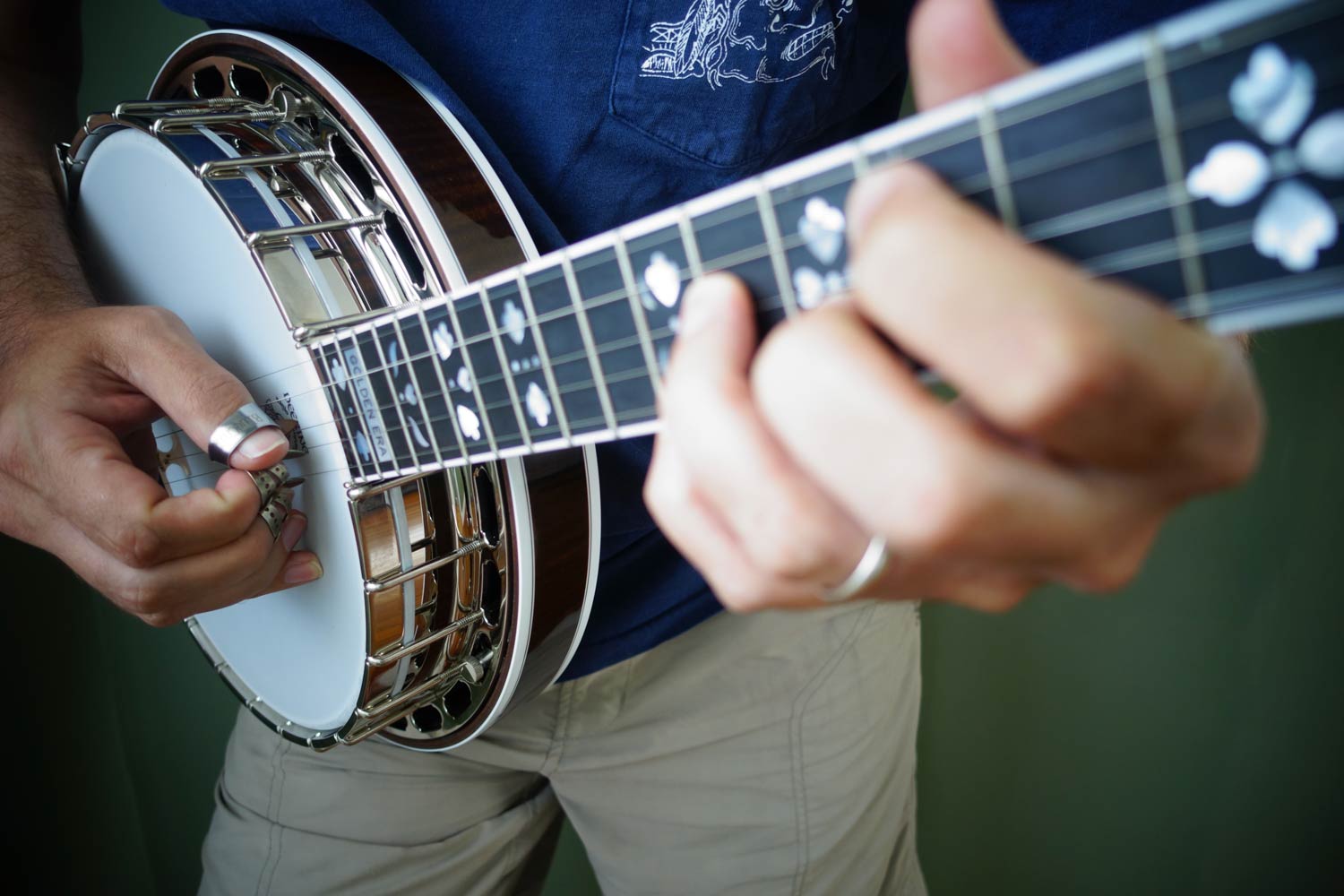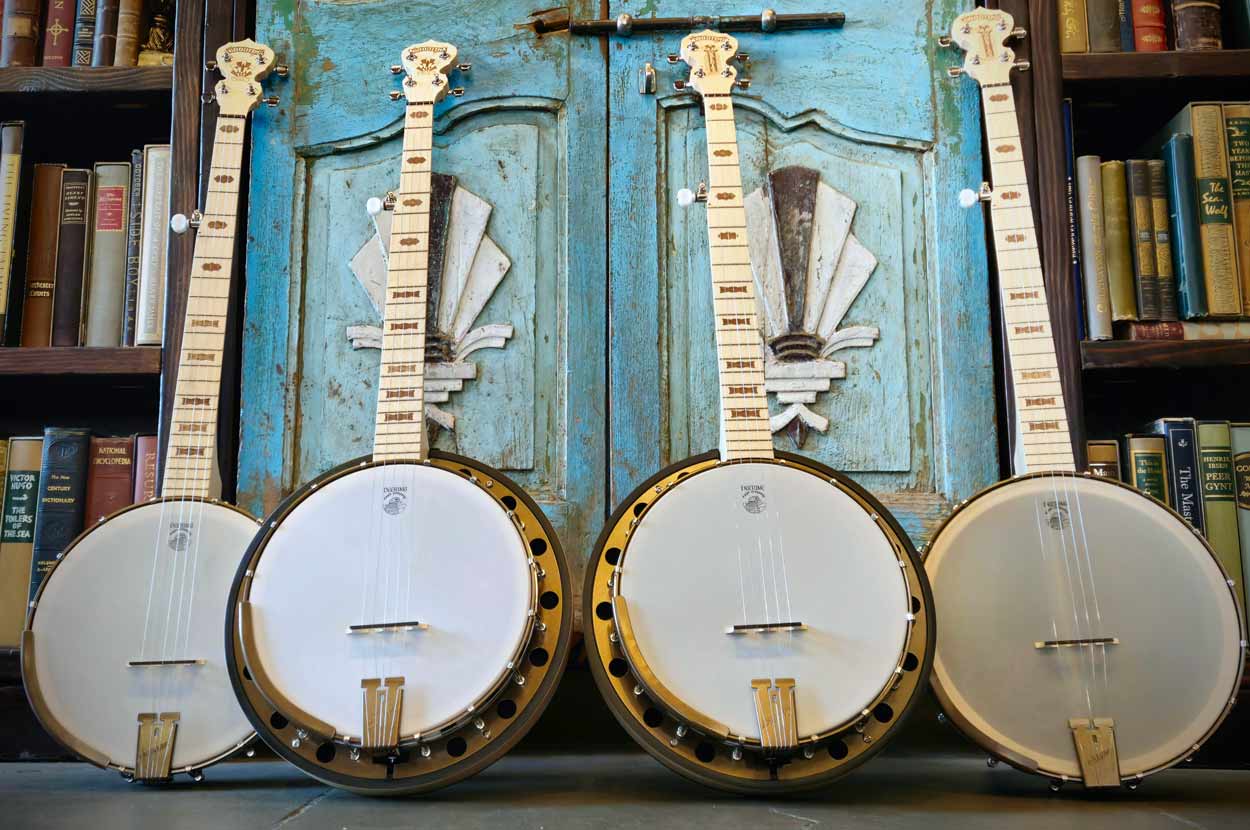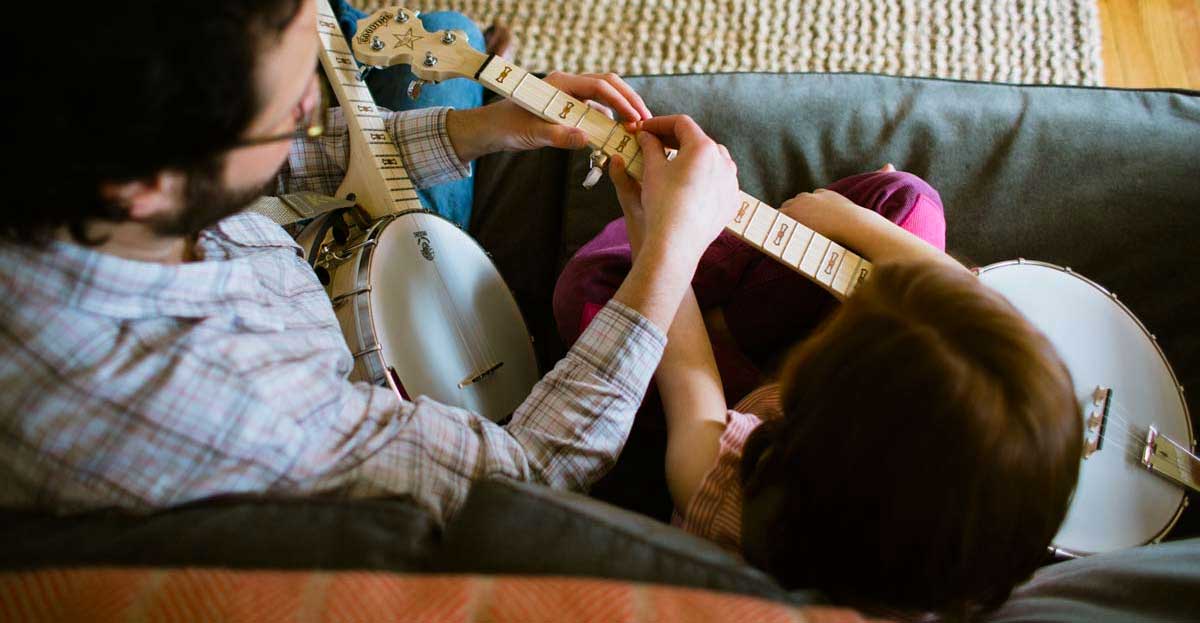Deering Banjos Featured in Company Week
by Mike Vieira on April 25, 2018
www.deeringbanjos.com
Spring Valley, CA
Founded: 1975
Employees: 48
Privately Owned
Industry: Consumer & Lifestyle
Products: Banjos

For more than forty years, the Deering family, Greg, Janet, and daughter Jamie have been manufacturing banjos and promoting music. The company’s success is a measure of its ability to manufacture a variety of high to low-end models, covering all price ranges, reaching a large group of musicians.
"We have more lines of banjos and more different products than any of our competitors by a wide margin," says founder Greg Deering. "We’re the only American banjo maker that manufactures a product in the lower price range, our Goodtime banjo, which accounts for about half of our sales."
Competition comes from lower-priced models made in China, but Deering is determined. "We compete well with manufacturers in China within the mid to low price-range instruments," says Deering. "China, however, still has some banjos that cost less than what we can manufacture here. They buy materials for the same prices that we do, and they make it up in lower labor, but that’s changing too. Labor in China over the last six or seven years has been steadily rising, along with the price of Chinese banjos. We recently had one of our main competitors completely discontinue selling banjos from China for that reason."
Over the years, Deering has seen competition from other countries like Japan, Taiwan, and Korea discontinue making banjos because of increasing labor costs. "It’s not the easiest product to make a profit with," says Deering. "The material and labor costs are high. We make our profit because we’re determined to do it. We love making banjos and we find ways through our knowledge of craftsmanship techniques to build some profit into it."
The company’s beginnings were a natural progression for Deering. "I had a passion for making things since early childhood," he says. "I got started playing music in grade school. Making things was also just in my blood." Deering recalls making his first banjo in college, then in 1970, went on to work with some friends to open a guitar shop called the American Dream.
He took the meaning of that name to heart and five years later, started the Deering Banjo Company. "My whole life has been a string of being in the right place at the right time, recognizing opportunities, and working along the lines of my passions," says Deering.
In an 18,000 square foot facility in Spring Valley, California, Deering Banjo manufactures almost everything in-house, sourcing only a few materials out of state. Deering says that future plans to bring the production of fasteners in-house will further increase its self-reliance. "There’s no such thing as a computerized machine that can make a banjo without hand-work," says Deering. "Even the simplest jobs take skill and craftsmanship."
The company trains most of its employees and many have been there for decades. With fewer high schools and colleges offering programs to teach hand-crafting skills, Deering believes it’s becoming more difficult to find young people to enter manufacturing trades of any kind.
The company sells wholesale to dealers, with approximately five hundred stores globally carrying its banjos. "If a customer walks in the front door and wants to buy straight from us, however, we never turn them away," says Deering. "We do have a policy to ask them who their favorite dealer is. If it turns out to be one of our stocking customers, we’ll issue a credit."
Currently, about 30 percent of Deering’s products are sold internationally, and the company continues to expand to new countries through its dealer network. "One big way we do that is our support of artists that are out there doing something different," says Jamie Deering, the company's markeing and public relations specialist. "Even if they’re not mainstream, sharing about it on social media can inspire people who wouldn’t normally pick up a banjo to realize that it’s a new palette that they can create with." Some of these artists include big names such as Steve Martin, Keith Urban, Tony Trishka and the Avett Brothers, to name a few. "Every one of the banjos we make is ultimately going to become somebody’s dream come true, and they’re going to make magic with it," says Deering.
Needs: "We’re constantly working on getting the banjo market itself to expand," says Deering. "We already have somewhere around fifty percent of the banjo market. We don’t want a bigger market share; we want a bigger market."
Challenges: Some of California’s environmental laws create challenges for the company. "The bureaucracies that are controlling environmental regulations are not always taking everything into consideration," says Deering. "We’d really like to urge everybody to create really good environmental laws, not laws based on emotional reactions to things. Sacramento puts laws on the books that make it harder to do business in California." The disadvantages are becoming so great that Deering thinks the company is considering future expansion to another state.
Opportunities: "Last year, we got a patent on a new banjo design that’s going to put a product on the market that’s at the same low price range the Chinese offer right now," says Deering.















